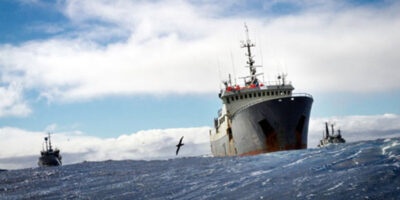Following reports of abuse, from sexual assault on Inuit women on mining sites in Canada to forced labour of Uighurs in China for the benefit of European companies to the massive pollution of the Niger Delta by Western oil companies, there is increased demand to hold firms responsible for their actions and to provide justice and a voice to victims of rights abuse. In response, the concept of due diligence in corporate social responsibility has developed in recent years, particularly in Europe.
Corporate due diligence refers to anticipating harmful human and environmental impacts that can happen in the production chains of companies so that they do not happen. In this article, we will explore why current legislation does not prevent abuse, what the European Union’s due diligence legislation will change, and what you can do at a personal level to protect human and environmental rights.
To gather different perspectives, I interviewed several specialists who work on due diligence
- Claudia Saller and Christopher Patz at the European Coalition for Corporate Justice
- Nayla Ajaltouni, the spokesperson for the Ethique sur l’étiquette collective, which is committed to the rights of textile workers around the world, and
- Rym Trabelsi, co-founder of an application that rates clothing according to its ethics.
The business lobbies, BusinessEurope and the Association française des entreprises privées, (representing more than 100 companies in France) declined my interview requests and directed me to their position papers.
What is the problem today?
Globalization is at its peak. Companies are relocating to third countries where legislation is less strict than in Europe, working conditions are not, or are barely, regulated and the environment is not protected. With this globalized production system, the parent companies, called principals, subcontract their production to a large number of participants in the supply chain so that the responsibility becomes blurred. The Rana Plaza scandal is a good example. Suppliers to major textile companies, many of them based in Europe, subcontracted their orders to a factory in Bangladesh. The dilapidated building collapsed, costing hundreds of lives and severely injuring many more. The principal companies did not consider themselves responsible or legally accountable for this tragic event.
There are already many laws protecting human rights as well as environmental rights. Why do we need more legislation?
What is at stake here is the responsibility of companies that establish themselves in countries where these rights are not sufficiently protected. Corporate liability has been regulated for several years. In 2011, the United Nations adopted guiding principles resting on three pillars: the corporate responsibility to respect human rights, as well as the state duty to protect human rights and the access to remedy for victims of business-related abuses. However, those guidelines are not binding. Companies can say they are committed to the protection of human and environmental rights, but there is no mechanism to ensure that they actually put their plans into action.

Christopher Patz, who works on promoting corporate responsibility at the European level, says that binding legislation is necessary to ensure accountability. “The actual situation allows companies to talk the talk,” he said. “We need a law to ensure that citizens and consumers are not continuously lied to and misrepresented by companies. If it is not binding, companies will not change their behaviour.”
France was the first country to adopt a due diligence law in 2017; the European mandatory due diligence legislation will bring a legal standard throughout the continent.
What is the European due diligence legislation?
On March 10, 2021, the European Commission adopted a legislative initiative report and its mandatory due diligence recommendations, and legislation is expected to follow. Companies trading in Europe will no longer be able to violate human and environmental rights in third countries with impunity. They become responsible of what happens along their whole production chain. Some companies, like Ferrero, Mars Wrigley, Mondelez International, Nestlé, Tony’s Chocolonely & Unilever, support the legislation. For the civil society, i.e. NGOs, trade unions and consumer associations, this brings a real change.

Claudia Saller, who coordinates national platforms of civil society organizations, welcomes this step forward. “Companies will have to put in place mechanisms. They will have to map risks and provide an action plan.” For Patz, a crucial point of the European due diligence is the access to justice for victims. “It is a key part of this due diligence laws,” he said. “It gives victims better access to UE court for the harm caused in the value chains of UE companies.”
What took so long? Resistance to the legislation
Many scandals have occurred over the last ten years without companies being held legally responsible. Nayla Ajaltouni, who is familiar with the production model of textile companies, points to their responsibility. “When companies have not organized their own irresponsibility, they have taken advantage of it,” she said. “Large companies are relocating to countries with no infrastructure and weak legislation to take advantage of the cheapest workforce available.” She says that, through their lobbying, they exert strong pressure on political leaders to avoid the adoption of restrictive laws.

Two arguments are often used by companies to defend their position. Business Europe position, set out in a February 2021 position paper, is that mandatory due diligence will have a critical impact on the competitiveness of companies, and the AFEP position is that companies are not solely responsible for problems in the supply chain. « The concept of due diligence is highly complex and requires the collaboration of many stakeholders. Companies alone cannot be expected to solve all the problems arising from failing or weakly governed States in which protective laws, guaranteeing human rights or the protection of the environment, are either inexistent or not applied.”

The companies’ arguments are not irrefutable. Saller says that the impact of due diligence on competitiveness is a classic argument, but it is not proven. The objective is to eventually target companies all over the world, so they will all be subject to the same rules. Patz disagrees with the argument by large companies that they are not the only ones responsible for rights violations. “Companies with big global value chains also have huge profit margins,” he said. “We expect this to be reinvested into doing due diligence to ensure that the product we receive as consumers are not made as a result of child labour or huge environmental impact.” Companies have the means, and need not undertaking due diligence alone. “The diligence is a participatory process. Business can be helped by labour union, experts or civil society groups. In the end it is about protecting human rights, environmental rights and a more sustainable business and global economy.”
The process is not done yet. The EU has voted in favour of the due diligence recommendations, but it will take until the summer of 2021 to reach an agreement on its conditions. They are crucial to determine the effectiveness of the law. For Patz, the due diligence should apply to as many companies as possible, and to their entire value chain. “Most of the most severe human rights violations, such as forced labour or child labour, take place at the far end of the production lines,” he said.
Consumer choices

To support the protection of human rights and the environment, consumers can have an impact on the textile sector, Ajaltouni says. She encourages people to rethink their buying choices, such as by choosing second-hand or ethically produced clothes. “We have a completely distorted vision of the price of clothing. The real cost of a t-shirt is not four euros but maybe thirty-five. To produce such cheap clothes, it is the stakeholders at the end of the supply chain who pay the consequences, like the workers who receive a very low salary and work in difficult conditions,” she said. “Clothes are not disposable goods; they have a considerable social and environmental cost.”
As Trabelsi told me, the Clearfashion French app she co-founded is a new initiative to help consumers find their way around. Clothing brands are rated by the application based on four criteria: environment, human, health, and animal well-being. The ratings try to ensure that information is complete and transparent and that a brand does not overlook any of the criteria. “The textile sector is very opaque. Clearfashion brings a way of information to consumers that they can’t get otherwise,” Trabelsi said.
However, Ajaltouni emphasizes that the responsibility remains with the companies. The strategy of promoting consumer responsibility is often used by companies to avoid regulation. “Due diligence is essential to put responsibility back in the hands of the powerful,” she said. “The main weapon is not that of the consumer but that of the citizen, with his or her capacity to exert pressure and challenge.”




